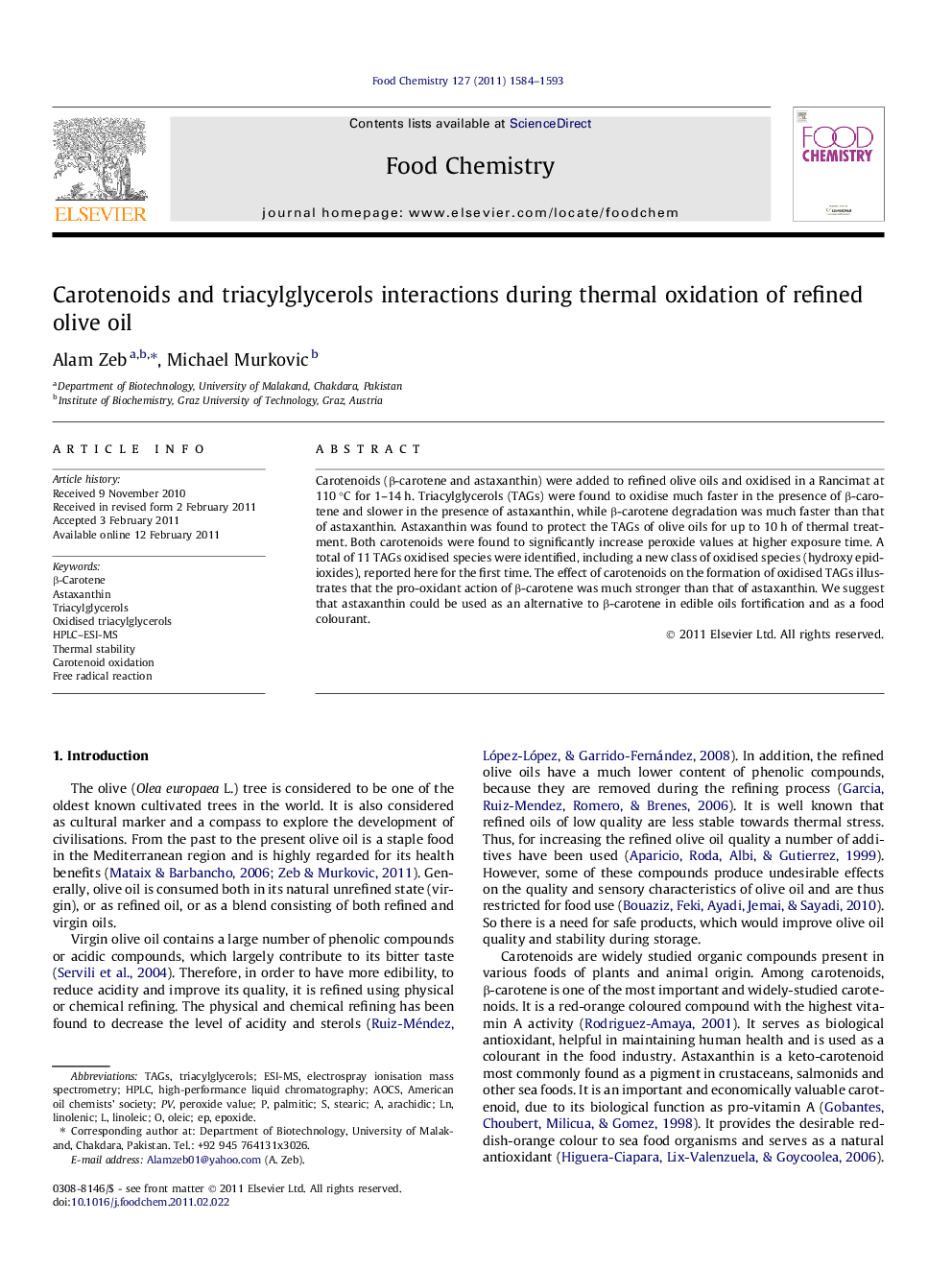| Article ID | Journal | Published Year | Pages | File Type |
|---|---|---|---|---|
| 1184674 | Food Chemistry | 2011 | 10 Pages |
Carotenoids (β-carotene and astaxanthin) were added to refined olive oils and oxidised in a Rancimat at 110 °C for 1–14 h. Triacylglycerols (TAGs) were found to oxidise much faster in the presence of β-carotene and slower in the presence of astaxanthin, while β-carotene degradation was much faster than that of astaxanthin. Astaxanthin was found to protect the TAGs of olive oils for up to 10 h of thermal treatment. Both carotenoids were found to significantly increase peroxide values at higher exposure time. A total of 11 TAGs oxidised species were identified, including a new class of oxidised species (hydroxy epidioxides), reported here for the first time. The effect of carotenoids on the formation of oxidised TAGs illustrates that the pro-oxidant action of β-carotene was much stronger than that of astaxanthin. We suggest that astaxanthin could be used as an alternative to β-carotene in edible oils fortification and as a food colourant.
Research highlights► Carotenoids were pro-oxidants during thermal oxidation in the refined olive oil. ► β-Carotene degradation was much faster than astaxanthin. ► First time report on thermal oxidation products of triacylglycerols in olive oil. ► New class of oxidised compounds, i.e. hydroxy epidioxides was identified. ► Hydroperoxides, epidioxides and epoxides were also identified.
